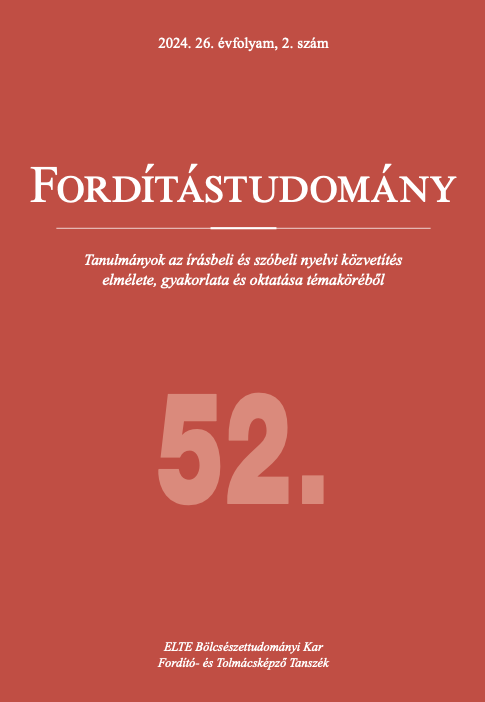What Makes a Translation Natural?
Abstract
Most practitioners, teachers, and researchers of language mediation have agreed since ancient times that (good) translations sound natural. However, the concept of naturalness remains unclear. Indeed, the very adjective natural is used in multiple terms of linguistics and Translation Studies. This paper first looks at those terms then naturalness as a property of both independent and translated texts. Then it goes on to review some approaches in Translation Studies to naturalness and seeks to answer when naturalness is desirable and when its absence is not a flaw. Descriptive Translation Studies refrains from such derogatory terms as contrived, translationese, constrained, convoluted, etc., and hence fails to offer a definition of naturalness. To encourage empirical research on the subject, this paper presents a sight translation exercise performed by a group of trainee interpreters, including several target language solutions that seemed unnatural to the present author.











1.png)
